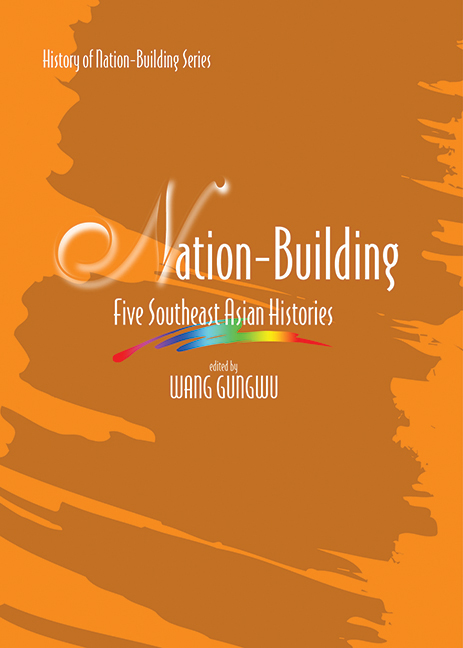Book contents
- Frontmatter
- Contents
- Preface
- The Contributors
- Chapter One Contemporary and National History: A Double Challenge
- Chapter Two Nation and State in Histories of Nation-Building, with Special Reference to Thailand
- Chapter Three Rethinking History and “Nation-Building” in the Philippines
- Chapter Four Writing the History of Independent Indonesia
- Chapter Five Ethnicity in the Making of Malaysia
- Chapter Six Historians Writing Nations: Malaysian Contests
- Chapter Seven Writing Malaysia's Contemporary History
- Chapter Eight Forging Malaysia and Singapore: Colonialism, Decolonization and Nation-Building
- Chapter Nine Nation-Building and the Singapore Story: Some Issues in the Study of Contemporary
- Chapter Ten Nation and Heritage
- Index
Chapter Nine - Nation-Building and the Singapore Story: Some Issues in the Study of Contemporary
Published online by Cambridge University Press: 21 October 2015
- Frontmatter
- Contents
- Preface
- The Contributors
- Chapter One Contemporary and National History: A Double Challenge
- Chapter Two Nation and State in Histories of Nation-Building, with Special Reference to Thailand
- Chapter Three Rethinking History and “Nation-Building” in the Philippines
- Chapter Four Writing the History of Independent Indonesia
- Chapter Five Ethnicity in the Making of Malaysia
- Chapter Six Historians Writing Nations: Malaysian Contests
- Chapter Seven Writing Malaysia's Contemporary History
- Chapter Eight Forging Malaysia and Singapore: Colonialism, Decolonization and Nation-Building
- Chapter Nine Nation-Building and the Singapore Story: Some Issues in the Study of Contemporary
- Chapter Ten Nation and Heritage
- Index
Summary
“History”, AS Claude Levi-Strauss asserted, “is … never history, but history-for”. Perhaps nowhere is the appropriation of this view that history must always be written from some viewpoint and, therefore, for some purpose in mind more evident than in its use for the agenda of nationbuilding. Few would deny that history and nation-building — defined by one commentator as “the creation by government of a cohesive political community characterized by an abiding sense of identity and common consciousness” — are inextricably related, for history, so far as traditional arguments go, not only “offers lessons (be they true or false) to which leaders, nations and peoples respond” but is also “the shaper of national identity”. Indeed, as the editors of Writing National Histories: Western Europe since 1800 point out, “Historical writing has been connected to the process of nation-building across Europe ever since the concept of the modern nation was first formulated in the American and French Revolutions of the late-eighteenth century.” In Singapore's experience of nation-building, however, the deliberative use of history in the fashioning of a national narrative — The Singapore Story — occurred belatedly, coming only after three decades of nation-building had lapsed. The use of history — and its perceived “politicization” — for the agenda of nation-building raises intrinsic conceptual and methodological concerns, as it did in the contemporary Singapore experience, that invariably ignited ideological contestation regarding the integrity and purpose of history — and what is the proper way of portraying the past accurately.
History and Nation-Building
“The past” — “as it was” — is how history has been commonly defined. To be more precise, history is really about the “study” of the past, for the past “as it was” is irrecoverable and all we have are what historians, working with available records and archival materials, write about the past. Their retrieval, and representation, of the past has traditionally been validated by the methodology of “scientific” history based on the rigorous investigation of primary sources. By retaining “objectivity”, so the argument goes, historians could ascertain the “facts” and so report the “truth”.
- Type
- Chapter
- Information
- Nation BuildingFive Southeast Asian Histories, pp. 221 - 250Publisher: ISEAS–Yusof Ishak InstitutePrint publication year: 2005

